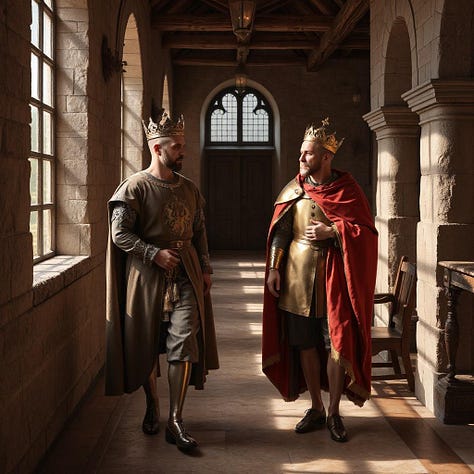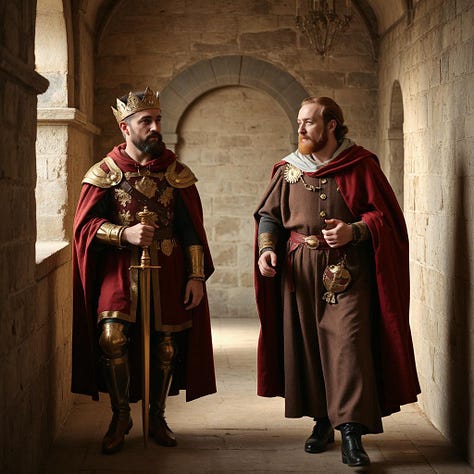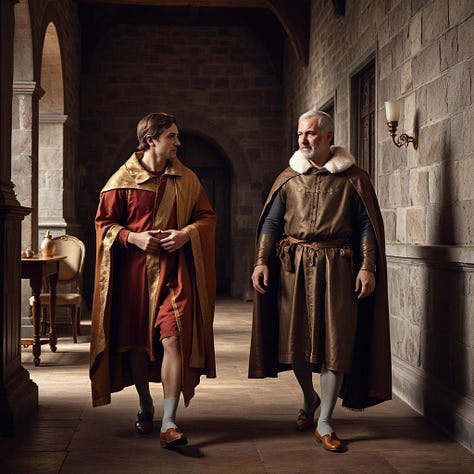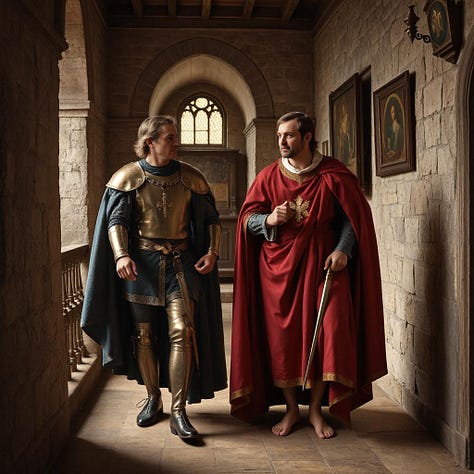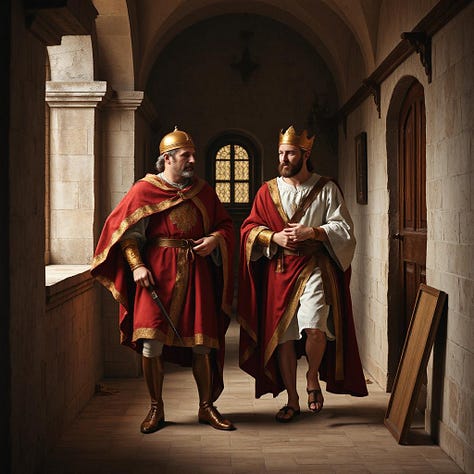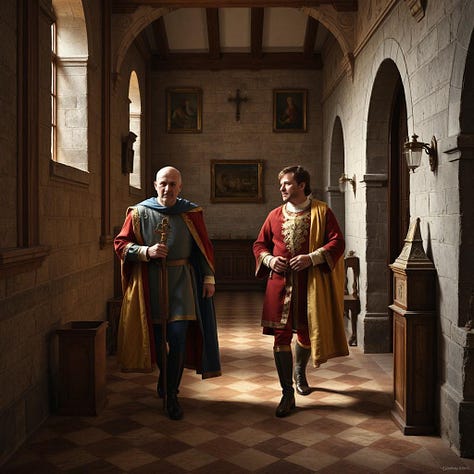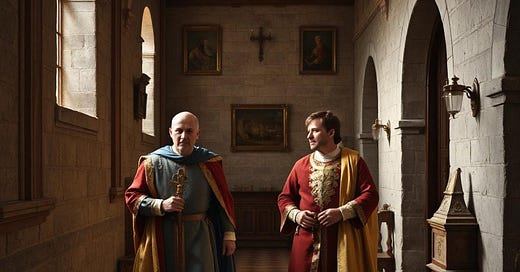Great Moravia: Why, who and where
Great Moravia lay in Central Europe in the 9th and 10th centuries. It was the first Slavic Central European state to challenge the mighty Francia and win—for a short time at least.
Great Moravia lay in Central Europe in the 9th and 10th centuries.
It was the first Slavic Central European state to challenge the mighty Francia and win—for a short time at least.
Duke Rastislav had a cheeky idea: He wanted to establish his own church—one that would stand between the East and the West—his own Slavic church. But he was ahead of his time.
Only a few tens of years later, the Bulgarian tzar would pick up the pieces from Rastislav's broken work and establish the first Slavic church, whose successor now rules the souls of the Russians, Ukrainians, Serbians, or Belarussians.
Let us look at the beginning of Rastislav's story, which tells how Francia's king chose him to rule in his name and how the young, ambitious Moravian duke tricked the experienced Francia's king into giving him an empire to rule.
Louis was sitting on a throne, and Rastislav knelt. They often met on more equal terms, but Louis wanted to emphasize their relationship this time. It was necessary for what he had to say. He let the young men kneel for a split moment longer than necessary, a little psychological trick that he knew Rastislav would not fail to notice. Then he ushered the young man to stand up, stood himself, and the two nobles started walking, pacing the room slowly.
'Your uncle, Mojmir, has grown too proud,' Louis started and waited.
Rastislav was quick to answer: 'I understand, my lord.'
When Louis was sure that the Moravian would say no more, he continued.
'I thought we were agreed with Mojmir. I thought he understood his position. Yet, he has plotted against us and believed we were weak enough not to answer. But I am strong now, and I cannot tolerate this. Moravia is to become a reliable part of the empire. The eastern mark. And I need a duke to rule the Moravians, somebody I can rely upon.'
Rastislav was silent longer before he spoke. Though Louis did not doubt his answer was carefully prepared. That the boy perfected his speech for days in advance:
'My lord,' Rastislav started. 'My uncle is a fool, yet he cares about his people. He is not an evil man, and he proved his loyalty to the Christian faith. I do not doubt this. Yet, he is a fool to think he can compete with the empire's glory. As there is a universal church we all bow to, there is an emperor all Christians must kneel before. My uncle is a man of the past, so he does not see the future.'
'And what about you, Rastislav?' asked Louis mildly. 'Are you a man of the future?'
'I learned a lot on your court, my lord,' answered Rastislav carefully.
Yet, Louis was not fooled by the art of diplomacy. The boy was clever, far too clever. The emperor saw the sparks of ambition flicker in his brown eyes. He knew Rastislav would say anything to grab the opportunity that awaited him.
Louis had known Rastislav for years. He was sure of his firm character; he studied him closely and inquired with the teachers often about him. Yet, character is one thing, and loyalty is another. He might be loyal to the emperor, or he might be loyal to his people and his noblemen; loyalties change even with the best of character.
Men are not dogs. If you take your most loyal dog and make him a pack´s leader, you have a loyal pack. Do this with a man; you might lose his loyalty once he learns his power. Men cannot be trusted. And no, Rastislav cannot be trusted.
But what choice did Louis have? Mojmir was out of control; he plotted against the empire and forsook the emperor's authority openly, which must be punished. Yet, Louis had only recently stabilized his power; he could not afford a long and demanding campaign.
And the Moravians might fight back.
Yet, give them one of their own, a member of the ruling house, a man of the future; give them Rastislav, and they might yield before the battle begins.
And if Rastislav turns around to bite the hand that used to feed him?
Well, we can deal with that later…
He turned to face the young duke: 'Rastislav, I will invade Moravia and depose Mojmir. I want you to lead the invasion.'
The young man did not even try to look surprised; he had long expected this. He only bowed respectfully: 'I will not fail you, my lord.'
Louis sighed: 'Oh, I hope you will not, son. I like you. It would sadden me if I had to do with you like I do with your uncle. But you are clever not to betray me, are you not, Rastislav?'
'My lord, I understand that you are an emperor, and we are all your subjects,' Rastislav said and raised his head.
Louis smiled with relief. The answer came too quickly; the boy was too eager. That is a good sign. Perhaps he is not that clever after all.
This is how it could have been.
How did it end with Great Moravia? Follow me or read my book, where you will learn about Great Moravia. I mix non-fiction historical texts with the narration of the sources and fictional dialogues like this one.
Buy here.
(If you like the book, please remember to rate it; it will help a lot!)
For the fun of it, I share the AI´s attempt to generate an image of a “medieval painting of two early medieval dukes—one king (older) and one a duke (younger). They are walking through a medieval hall and talking about politics.”
AI has trouble with generating shoes and is obsessed with people wearing shorts.
